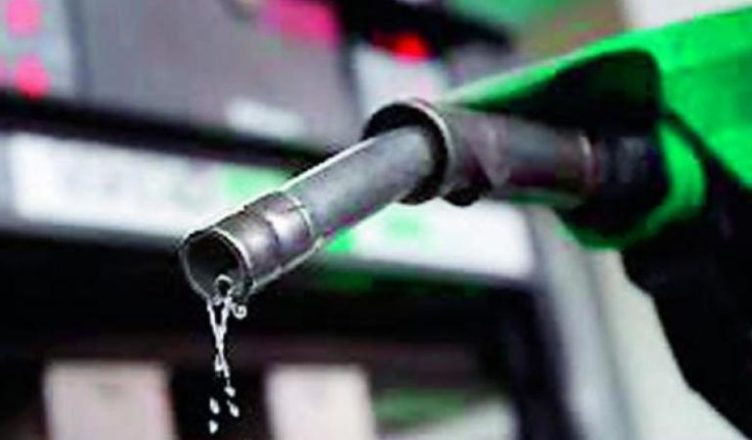This is the most distressing time for business owners in Nigeria. The last few weeks have seen the nation’s business environment groan more perceptible under harsher economic conditions, thereby giving vent to the threat of collapse of businesses and its attendant fallouts.
For a very long time power supply has been the bane of businesses in Nigeria, but the problem has taken a dire dimension with the nation’s electricity suffering repeated collapse recently thrreby shutting down production activities in the country
This challenge is coming at a time the price of fuel, especially diesel, a major alternative source of energy to electricity, has skyrocketed to unprecedented level, and putting business organisations in a fix, and the jobs of millions of Nigeria under serious threat.
Mrs Ramat Abdulganiu is a business owner who runs a recycling and polythene factory in Ota, Ogun State.
The CEO of Ramgan Venture told Sunday Sun that the last few weeks had proved much more difficult for her business as poor power supply and the high cost of diesel have combined to put her once bustling factory in fits-and-starts sort of operation.
“The past months have been very hostile to business due to poor power supply and the prohibitive cost of alternative source of power. A litre of diesel now sells for N700. There is no way one can break even using N700 a litre diesel to power the generating set for production. So what we do is to consider how we can efficiently manage the situation until things normalize,” she said.
Mrs Yetunde Abayomi, a frozen food business operator, is not finding the situation easy either
Mrs Abayomi who operates a chain of frozen food outlets in Lagos State said that the poor power situation coupled with the high cost of fuel has forced her to scale down the operations in her business outlets, noting that maintaining the same business tempo in the face of the latest challenge will be counter-productive.
“I have decided to reduce my stock because of the unreliable situation of the power supply. Frozen food business relies heavily on electricity, but where one is not certain of having regular electricity supply the best thing to do is to reduce your stock in order to mitigate the risk that comes with such uncertainty. That decision, of course, has its own price – it comes with low returns, even if any at all at the end of the day.
For Mr Babajide Lawal, a welder, meeting up with customers’ demands in the last two months has been a major challenge.
Before now, the problem of irregular power supply was not much of a challenge to him until the cost of diesel, which he also relies on as an alternative source of energy, rose astronomically
Mr Lawal told Sunday Sun that the exorbitant cost of diesel has forced him to rely heavily on electricity, the supply of which he noted had dipped further recently.
“I am now constrained to stay back at the workshop and work overnight in anticipation that there could be power supply at night. But some days we don’t get to see power restored even at night and that means one will just suffer himself staying back at workshop overnight. It has never been this bad,” he lamented.
The lamentation over poor power supply occasioned by repeated national grid collapse and high cost of diesel to power generating sets is not limited to small and medium scale businesses in Nigeria.
A fortnight ago, First Bank of Nigeria announced its decision to review its duration of operations at some of its branches across the country
According to a publication on the website of the bank, some branches are to operate from 8:00a.m to 1:00p.m based on their locations, while some will have their period of operations between 8:00a.m to 2:00p.m. Some other branches will run between 8:00a.m and 3:00p.m; and 8:00a.m to 4:00p.m respectively. The bank hinged its decision on the rising energy cost.
“We have revised our banking hours across all our locations. The revised opening and closing hours will be effective from Monday, 11th April 2022,” the bank revealed in a statement.
The bank, which is one of the first generation banks in the country, said that its alternative and digital channels will, however, be available and accessible 24/7 anywhere to meet customers’ banking needs.
First Bank’s latest decision came almost a month after Guaranty Trust Bank had announced similar adjustment in its operations.
GTB had in March adjusted its closing time from 5:00p.m to 4:00p.m following the persistent increase in diesel pump price. Guaranty Trust Holding Company Plc, GTCO, adopted similar measures weeks ago, reducing closing time from about 6:00p.m to 4:00p.m daily.
An economic expert, Dr Shina Adeyanju, described the development as precarious for the country and call on the government to rise to the occasion and rescue Nigerians from further slide into what he described as unprecedented economic quagmire.
“What is currently playing out does not bode well for Nigerians. The energy situation is now so bad that business organisations, including banks are now reducing their period of operations in order to minimize cost incurable on energy. This is a dangerous signal. It won’t come as a surprise when they begin to downsize. Job loss is imminent except the government does something urgently to salvage the situation. Another aftermath of this is inflation because business owners will definitely shift the burden to final consumers,” he noted.
Reacting to the development, the the Lagos Chamber of Commerce and Industry (LCCI) called for transition to renewable energy, noting that renewable energy is the most sustainable solution to Nigeria’s power shortage.
According to LCCI President, Michael Olawale-Cole, on the back of these challenges, businesses have had to deal with the rising cost of manufacturing, exorbitant logistics and constrained production.
“With the cost of diesel at record levels and persisting poor power supply, businesses are running on unsustainable costs and producing at uncompetitive prices,” he noted.
Show original message
Also adding his voice to the issue, the Chief Executive Officer, Centre for the Promotion of Private Enterprise (CPPE), Dr Muda Yusuf, said that the repeated collapse of national grid at a time the cost of fuel is very high, portends grave implication for the economy.
According to him, “this is about the worst time such a thing should be happening. It has shut up a lot of costs. The fall back option is very expensive. When cost goes up, it affects turnover, sales, profit margin, and the wellbeing of the people is also affected. It also drives inflation. In the last one to two years, Nigerians have been lamenting the high inflation rate. This is because once there’s inflation; cost of everything goes up astronomically. Both on the side of the citizens, businesses are badly affected; it has been very tough for small businesses and not many of them can survive this for too long.”
Source: The Sun

